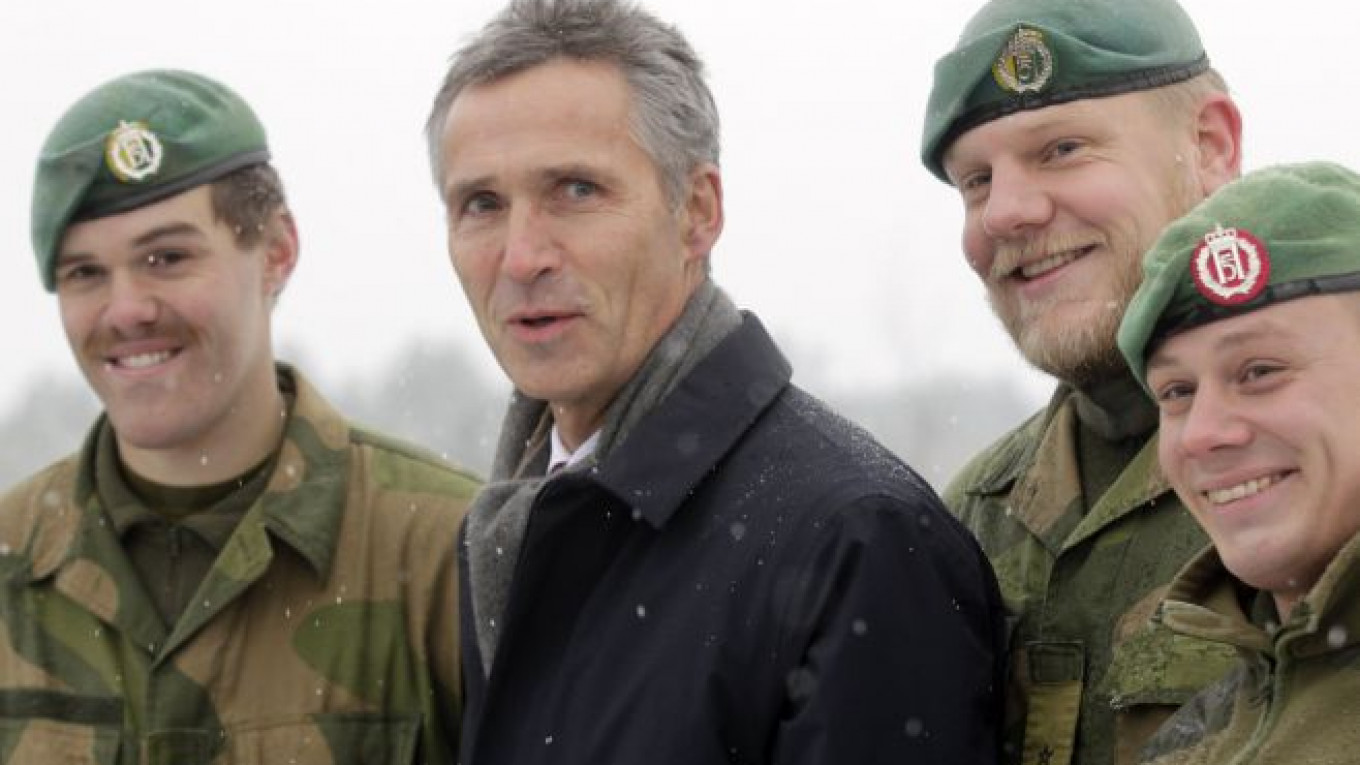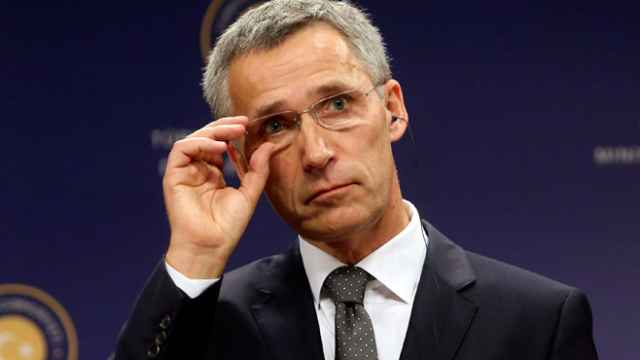NATO's planned new fast-reaction force, centerpiece of its response to Russia's annexation of Crimea, is proving harder to set up than expected because of shortages of vital equipment and arguments over funding, diplomats say.
NATO leaders meeting in Wales in September agreed on a new "spearhead" force of up to 5,000 ground troops with air, sea and special forces support as part of a plan to reassure eastern European allies nervous about Russia's actions in Ukraine.
NATO leaders envisaged a force able to quickly reinforce eastern Europe — comprising countries that were under Soviet domination during the Cold War but are now NATO members — in case of trouble. Some units would be ready to move in two days, compared with the five needed by NATO's current response force.
"We've found that standing up that capability has more difficulty involved than perhaps the alliance expected when it took the decision at Wales," Britain's ambassador to NATO, Adam Thomson, told reporters.
One reason is the downsizing of NATO armed forces, reducing the ability to whisk equipment across Europe since the Cold War.
"We have moved so far away from the capabilities that the alliance developed for collective defense through the Cold War," Thomson said.
NATO foreign ministers meet next Tuesday to review progress since the summit. NATO expects defense ministers to approve the size and design of the "spearhead" force next February.
But diplomats do not expect it to be fully operational until 2016. Next year, NATO will strive to improve its existing rapid reaction force as a stepping stone to the new "spearhead."
Another NATO diplomat, speaking on condition of anonymity, said the debate over the "spearhead" focused on "who is going to pay for it and who is going to provide troops and equipment"?
European allies are expected to play the lead role in the "spearhead." However, because of capability gaps exacerbated by years of spending cuts, the Europeans may have to rely on the United States, NATO's dominant military power, to help with air transport of heavy equipment and reconnaissance.
Fewer than 100 NATO troops are expected to be based in the Baltic states, Poland, Romania and Bulgaria to organize rapid reinforcement. The "spearhead" force would rotate between different countries each year, with the best equipped European allies — Britain, France and Germany — taking the lead.
Diplomats say other allies need to come forward to avoid having the burden fall too heavily on a few countries.
A Message from The Moscow Times:
Dear readers,
We are facing unprecedented challenges. Russia's Prosecutor General's Office has designated The Moscow Times as an "undesirable" organization, criminalizing our work and putting our staff at risk of prosecution. This follows our earlier unjust labeling as a "foreign agent."
These actions are direct attempts to silence independent journalism in Russia. The authorities claim our work "discredits the decisions of the Russian leadership." We see things differently: we strive to provide accurate, unbiased reporting on Russia.
We, the journalists of The Moscow Times, refuse to be silenced. But to continue our work, we need your help.
Your support, no matter how small, makes a world of difference. If you can, please support us monthly starting from just $2. It's quick to set up, and every contribution makes a significant impact.
By supporting The Moscow Times, you're defending open, independent journalism in the face of repression. Thank you for standing with us.
Remind me later.





